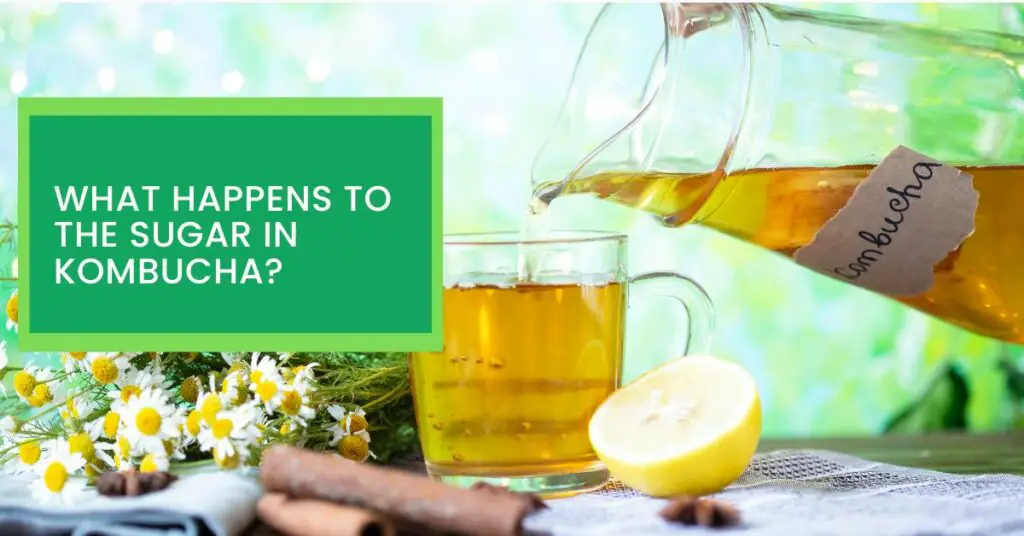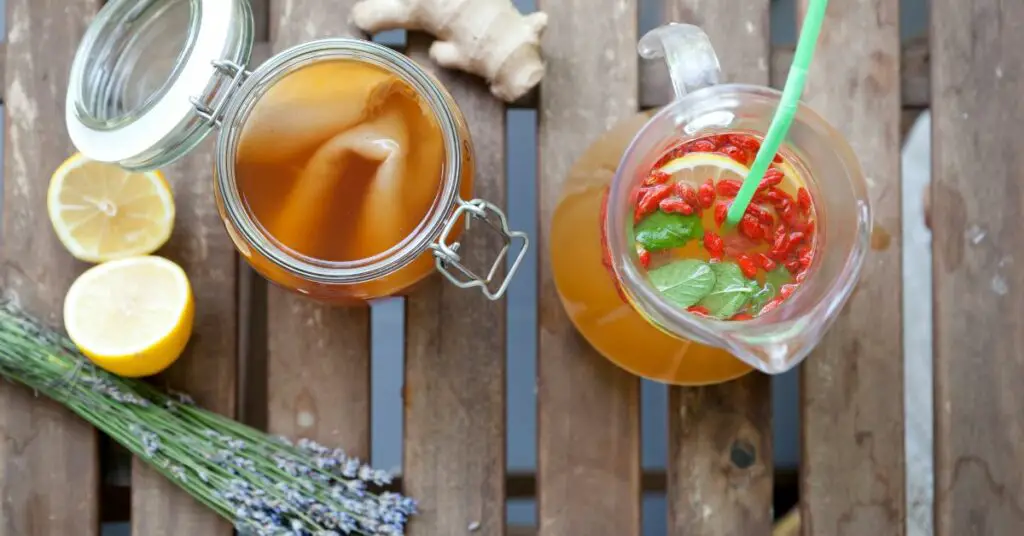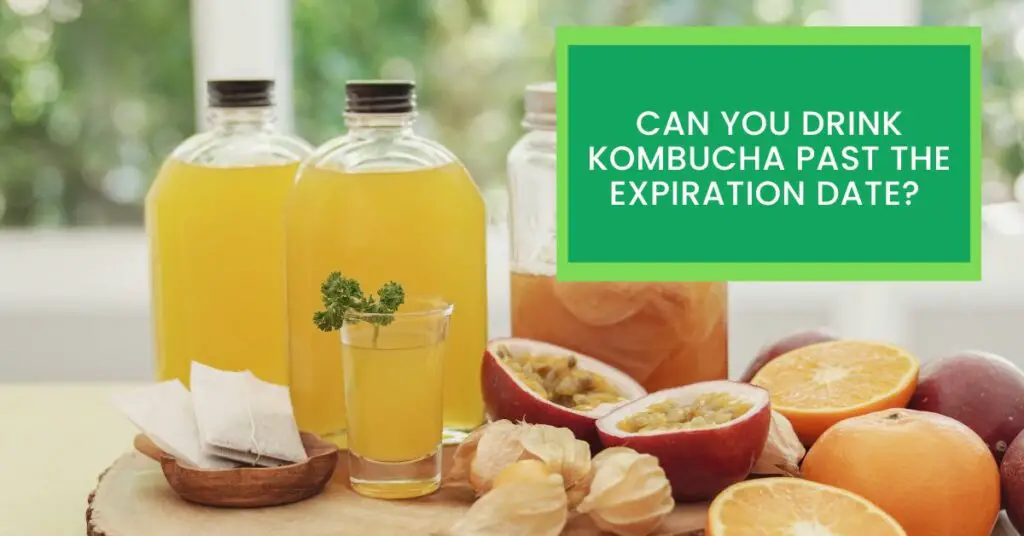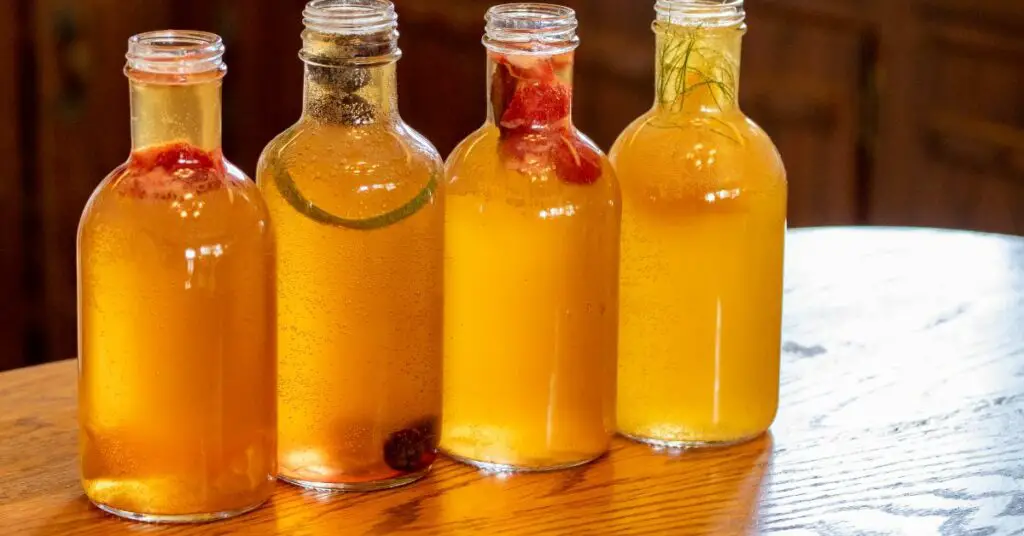Kombucha is a type of fermented tea that has been enjoyed for centuries.
While kombucha is often praised for its health benefits, some people are concerned about the sugar in kombucha.
Sugar is necessary for the fermentation process so that all kombuchas will contain some sugar. However, what happens to the sugar in kombucha?
The answer is during the fermentation process, the yeast consumes the sugar and produces carbon dioxide gas and ethanol.
The result is a beverage that has significantly less sugar than what’s in the original tea.
In this article, we will take a closer look at the sugar in kombucha and how it is affected by fermentation.
What is Kombucha?
Kombucha is a fermented beverage made from sweetened tea that is commonly consumed for its supposed health benefits. It is also known as “kombucha tea” or simply “kombucha.”
The fermentation process of kombucha produces probiotics, which are beneficial bacteria that can help improve gut health. Additionally, kombucha is rich in vitamins and minerals, including B vitamins, vitamin C, and enzymes.
Some people believe that kombucha has numerous health benefits, such as boosting energy levels, aiding digestion, and helping to detoxify the body. However, there is limited scientific evidence to support these claims.
Why Use Sugar For Kombucha?
Sugar is an essential ingredient for making kombucha. Kombucha is a fermented tea drink that has been around for centuries and is known for its health benefits.
Sugar is needed in the fermentation process, which breaks down the tea and produces the probiotics that are so beneficial to our health.
Many different types of sugar can be used for kombucha, but cane sugar is the most common. You can also use honey, molasses, or other types of sugar.
Sugar is what the yeast eats to produce the carbon dioxide and alcohol that gives kombucha its fizziness and slightly alcoholic taste.
While sugar is necessary for making kombucha, it is important to use good quality sugar. Refined white sugar is not the best choice, as it can contain chemicals and other impurities. Cane sugar or organic sugar is a better choice.
The amount of sugar you use will depend on your personal taste. Some people like their kombucha sweet, while others prefer it to be more tart.
You can experiment with different amounts of sugar to find the perfect taste for you.
Does Kombucha Fermentation Work to Create Sugar by Itself?
Kombucha is a fermented beverage that has been around for centuries. The fermentation process of kombucha creates sugar by itself, which is then used to sweeten the drink.
Kombucha is made by adding a culture of bacteria and yeast to sweetened black tea. This culture feeds on the sugars in the tea and converts them into alcohol and acids.
The kombucha fermentation process takes around a week to 30 days. After fermentation, the kombucha is then bottled and can be stored for up to a month.
Does Sugar Support the Creation of Alcohol in Kombucha?
Many people enjoy kombucha for its slightly sweet, slightly tart, and slightly effervescent taste. However, some people are concerned about the alcohol content in kombucha.
While it is true that kombucha contains trace amounts of alcohol, it is usually not enough to cause any intoxication.
The alcohol content in kombucha is a result of the fermentation process. Sugars are converted into alcohol and carbon dioxide gas. The amount of alcohol in kombucha depends on the type and amount of sugar used, as well as the length of time that the kombucha is fermented.
Typically, kombucha made with refined sugar will have a higher alcohol content than kombucha made with natural sugars.
However, both types of kombucha will contain less than 0.5% alcohol by volume. For comparison, most beers have an alcohol content of 4-6%.
So, if you’re concerned about the alcohol content in kombucha, you can rest assured that it is very low. However, if you are pregnant or breastfeeding, you may want to avoid kombucha, as the alcohol content could be harmful to your baby.
Does Drinking Too Much Kombucha Might Lead You to Diabetes?
You’ve probably seen kombucha in the grocery store and wondered what it is. Kombucha is a fermented tea that has been around for centuries. Some people swear by its health benefits, claiming that it can improve digestion, boost energy levels, and even help fight cancer.
But while kombucha may have some health benefits, drinking too much of it can lead to serious health problems, including diabetes.
Kombucha contains high levels of sugar, which can cause blood sugar levels to spike. This can be especially dangerous for people with diabetes or those who are at risk of developing the disease.
Drinking too much kombucha can also lead to weight gain, which can further increase your risk of diabetes.
If you’re going to drink kombucha, it’s important to do so in moderation. Stick to one or two cups per day and monitor your blood sugar levels closely. If you notice any changes in your blood sugar levels, stop drinking kombucha and talk to your doctor.
Can You Make Kombucha Without Sugar?
Kombucha is a fermented drink made from sweetened tea and a symbiotic culture of bacteria and yeast (SCOBY).
The fermentation process produces enzymes, organic acids, and probiotics that are beneficial for gut health. However, kombucha also contains sugar, which can be a problem for people who are trying to avoid sugar or limit their intake.
So, can you make kombucha without sugar? The answer is yes! There are a few different ways to sweeten kombucha without using sugar.
You can use fruit juice, honey, or stevia. Each of these options will add sweetness to the drink, but they will also add calories. If you are trying to avoid sugar for health reasons, you may want to limit your intake of kombucha made with these sweeteners.
If you are looking for a way to make kombucha without sugar, try using fruit juice, honey, or stevia. These options will add sweetness to the drink without adding extra calories.
Frequently Asked Questions Related to Sugar in Kombucha
1. Does sugar disappear in kombucha?
Most of the sugar is consumed in the fermentation process. Kombucha does still have some sugar in it, but it’s not enough to cause problems for most people.
In fact, kombucha can actually help to regulate blood sugar levels and improve digestion.
2. Does the SCOBY in kombucha eat the sugar?
The SCOBY in kombucha eats the sugar and turns it into vinegar and carbon dioxide.
During the fermentation process, the bacteria consume the majority of the sugar. This is why kombucha has a slightly sour taste and is less sweet than when it is first brewed.
3. Is fermented sugar still sugar?
Yes, sugar consumed in the fermentation process is still sugar.
The sugar may be turned into alcohol or carbon dioxide gas, but it’s still classified as a carbohydrate and provides the same number of calories as other types of sugar.












